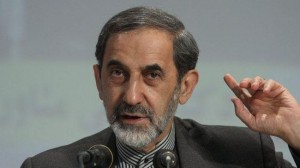 TEHRAN (FNA)- Iranian Supreme Leader's senior advisor Ali Akbar Velayati lashed out at the UN Special Rapporteur on Human Rights for his biased reports on Iran, and said Ahmed Shaheed takes orders from the big powers, specially the US.
TEHRAN (FNA)- Iranian Supreme Leader's senior advisor Ali Akbar Velayati lashed out at the UN Special Rapporteur on Human Rights for his biased reports on Iran, and said Ahmed Shaheed takes orders from the big powers, specially the US."The so-called human rights rapporteur speaks out whatever is dictated to him (by the West, the US in particular), otherwise the international community never wants a UN representative to say things for the sake of serving the big powers," Velayati told FNA on Tuesday.
He underlined that Ahmed Shaheed's allegations can't push Iran to change course of action, and said, "What is going on in Iran is a practice of Islamic human rights which are the most advanced" compared with other human rights agendas.
Iran has repeatedly stressed its opposition to the Ahmad Shaheed's appointment as a special UN human rights rapporteur for Iran.
On Monday, Secretary of Iran�s Human Rights Council Mohammad Javad Larijani said Ahmed Shaheed is supporting terrorists.
"One of the problems with Ahmed Shaheed is that he is a staunch supporter of terrorism because he calls terrorist suspects as advocates of human rights like his support for those terrorists who killed people in a Hosseiniya (religious center) in Shiraz," Larijani told the state television in an interview.
He explained that the UN has three mechanisms for reporting, and said, "The Universal Periodic Review (UPR) on human rights is the first of such mechanism and all countries without any exception should release their UPR reports and their human rights records is reviewed once every four years."
He underlined that Iran has been among the first countries that presented and accepted this initiative.
Larijani had also earlier said during his address to a conference on human rights in Tehran on Sunday that reports by UN rapporteurs is the second type of such mechanisms, and stressed, "Iran does not have a problem with this type of mechanism as the UN rapporteurs have travelled to Tehran several times before and they will also continue to do so."
Larijani said the third mechanism used by the UN for reporting on the human rights conditions of the UN member states is the product of the work of special rapporteurs. "We have serious problems with the special rapporteur and since the victory of the Islamic Revolution in 1979 Ahmad Shaheed is the third UN special rapporteur."
The secretary of Iran's Human Rights Council underlined that Iran itself will release its UPR report this Friday.
Elaborating on the cause of Iran's opposition to the present UN Special Rapporteur on Human Rights in Iran, Larijani pointed to the six problems that Iran has with Ahmed Shaheed, and said, "Our first problem is that they should explain why (the UN wants to send) a special rapporteur, what has happened in Iran that they have appointed a special rapporteur and why this rapporteur is needed for Iran and not for other countries."
The secretary of Iran's Human Rights Council referred to the second problem as Ahmed Shaheed's biasedness and his lack of impartiality as a UN rapporteur. "We do not want Shaheed to be our friend, we only say that he should not take political stances against Iran."
Larijani pointed to the third problem as the method of survey used by Shaheed, and said, "Whenever we ask about his method, he does not say a word."
Pointing to the fourth problem, he said Shaheed is fabricating documents against Iran.
And, he said, the sixth problem with Ahmed Shaheed is that he has insulted Islam on numerous occasions.
The Universal Periodic Review (UPR) is a unique process which involves a review of the human rights records of all UN Member States. The UPR is a State-driven process, under the auspices of the Human Rights Council, which provides the opportunity for each State to declare what actions they have taken to improve the human rights situations in their countries and to fulfill their human rights obligations. As one of the main features of the Council, the UPR is designed to ensure equal treatment for every country when their human rights situations are assessed.
UN Chief Ban Ki-moon says the Universal Periodic Review "has great potential to promote and protect human rights in the darkest corners of the world."
By Fars News Agency
The Iran Project is not responsible for the content of quoted articles.










